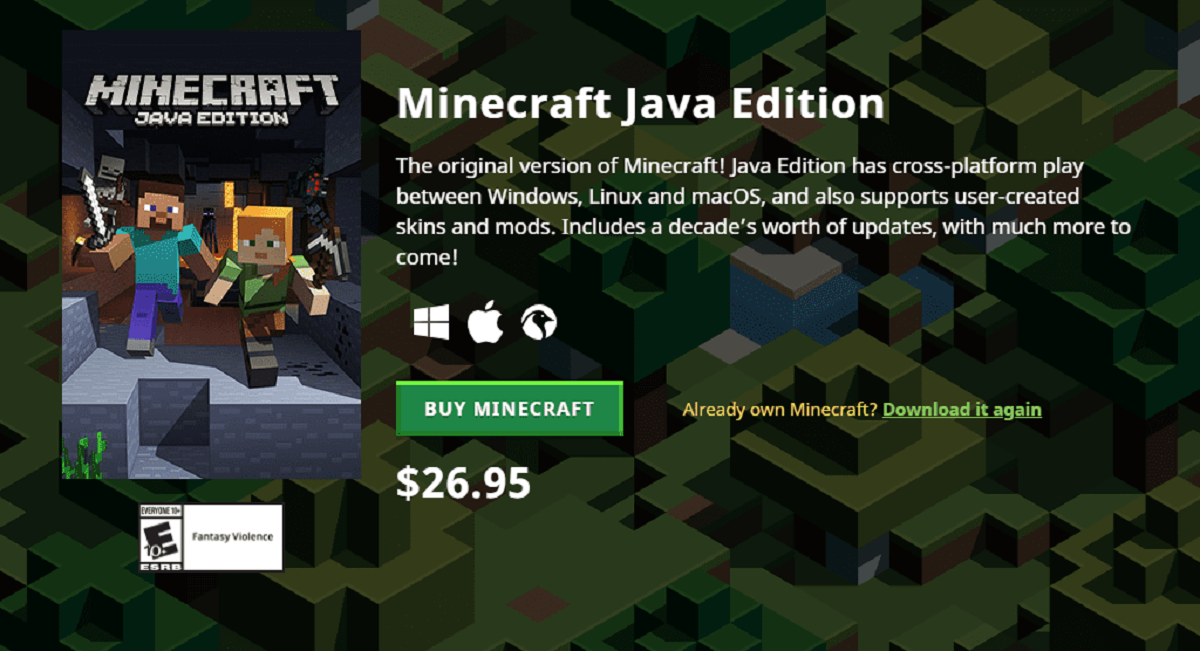Introduction
Griefing is a term that has gained popularity in the world of online gaming. It refers to the act of deliberately causing disruption, annoyance, or frustration to other players within a virtual gaming environment. Griefers are individuals who engage in these disruptive activities, often for personal amusement or to gain a sense of power and control.
Online gaming has become a global phenomenon, attracting millions of players from all walks of life. While most gamers enjoy the immersive and competitive nature of these virtual worlds, there is a subset of players who derive satisfaction from causing chaos and misery to others. These griefers can be found in various multiplayer games, ranging from massive online role-playing games (MMORPGs) to first-person shooters.
As online gaming has evolved, so have the methods and motives of griefers. From simple acts of taunting or trash-talking to more sophisticated tactics such as hacking and cheating, griefers continuously find new ways to disrupt gameplay and ruin the experience for others.
Understanding the different types of griefers and their motivations is crucial in combatting their disruptive behavior. In this article, we will explore the various types of griefers, delve into their motives, discuss the impact of griefing on online gaming, and provide strategies for dealing with and preventing griefing incidents.
Definition of Griefers
Griefers, also known as trolls or grief players, are individuals who intentionally disrupt the gameplay experience of other players in online gaming environments. They thrive on causing frustration, annoyance, and anger to their victims and derive pleasure from spoiling the enjoyment of others.
Griefers employ a variety of tactics to wreak havoc within the game. They may engage in activities such as continuously killing or attacking other players, stealing items or resources, sabotaging missions or quests, spreading false information, or engaging in verbal harassment and abuse. Their goal is to disrupt the flow of gameplay and generate negative emotions among their victims.
These disruptive actions are often fueled by a desire for power and control. Griefers enjoy manipulating the virtual world to their advantage and relish in the chaos and distress they cause. Their actions may be driven by a sense of superiority, the thrill of breaking the rules, or simply the pleasure derived from others’ frustration.
Griefers can be categorized into various types based on their modus operandi. Some griefers may focus on directly attacking and killing other players, known as player killers (PKers). Others may engage in griefing through social manipulation, spreading rumors, and sowing discord within online communities. Some griefers may resort to hacking, cheating, or exploiting vulnerabilities within the game to gain an unfair advantage.
It is essential to differentiate griefers from players who engage in friendly competition or trash-talking, as the intent behind their actions is fundamentally different. While competitive players may taunt or challenge their opponents within the boundaries of fair play, griefers aim to disrupt and harm others indiscriminately.
Overall, griefers represent a dark side of the online gaming community. Their actions not only spoil the gaming experience for others but also erode the sense of community and fair play that should exist within these virtual worlds. It is important for players, game developers, and administrators to recognize and address the issue of griefing to create a safer and more enjoyable gaming environment for everyone involved.
Types of Griefers
Griefers come in various forms, each with their own unique approach to disrupting online gaming experiences. Understanding the different types of griefers can help identify their tactics and develop effective strategies to mitigate their impact. Here are some common types of griefers:
- Player Killers (PKers): These griefers derive pleasure from engaging in non-consensual player versus player (PvP) combat. They continuously attack and kill other players, often targeting weaker or unsuspecting individuals. PKers may roam popular areas or specific zones, seeking out victims to engage in combat or kill for their own amusement.
- Social Manipulators: These griefers excel at manipulating social dynamics within online communities. They may spread false information, sow discord, and provoke conflicts between players or guilds. Social manipulators thrive on creating tension and mistrust, turning friendly communities into toxic environments.
- Scammers: Scammers are griefers who use deceit and trickery to exploit other players for personal gain. They may falsely advertise rare items, offer fraudulent services, or engage in phishing attempts to steal personal information. Scammers prey on the trust and naivety of their victims, causing financial losses and frustration.
- Exploiters: Exploiters exploit game vulnerabilities or bugs to gain unfair advantages. They may use cheats, hacks, or glitches to bypass game mechanics or acquire rare items without legitimate effort. Exploiters undermine the integrity of the game, creating an uneven playing field and diminishing the experience for others.
- Griefing Guilds: Some griefers organize themselves into guilds or groups dedicated to causing chaos and disruption. These guilds target specific servers or communities, coordinating their efforts to overwhelm or harass other players. They may engage in mass player-killing, griefing events, or coordinated sabotage activities.
While these types of griefers can vary in their tactics and motivations, their common objective remains the same – to create frustration and misery for other players. Recognizing the patterns and behaviors exhibited by these griefers can help game developers and administrators implement measures to prevent and address their disruptive actions.
Motives Behind Griefing
Griefing behavior in online gaming is driven by various motives, often stemming from psychological and social factors. Understanding the underlying motivations behind griefing can provide insights into why some individuals engage in disruptive and destructive actions. Here are some common motives behind griefing:
- Power and Control: Griefers may feel a sense of empowerment and control when they disrupt the gameplay of others. By causing frustration and anger, they exert dominance over their victims and derive satisfaction from the chaos they create.
- Entertainment and Amusement: Some griefers simply find pleasure in the suffering and misery of others. They view griefing as a form of entertainment, deriving enjoyment from the reactions and emotional distress of their victims.
- Revenge: Griefing can be a way for individuals to seek revenge for perceived slights or injustices they have experienced within the game. They may target specific players or communities that they believe have wronged them, seeking retribution through disruptive actions.
- Boredom and Lack of Challenge: For some players, griefing serves as a way to alleviate boredom or dissatisfaction with the game. Engaging in disruptive actions provides a break from routine gameplay and adds excitement by introducing unpredictability and chaos.
- Attention-Seeking: Griefing may be an attention-seeking behavior where individuals crave recognition, even if it comes in the form of negative attention. By causing disruptions and attracting the ire of other players, griefers can fulfill their need for acknowledgment and social interaction.
- Testing Boundaries: Some individuals engage in griefing as a way to test the limits of the game and its rules. They enjoy pushing the boundaries of what is considered acceptable behavior within the virtual world, exploring the consequences and reactions provoked by their actions.
It is important to note that not all players who engage in disruptive actions are inherently malicious or intent on causing harm. Sometimes, individuals may experiment with griefing behavior out of curiosity or as a result of peer pressure within the gaming community.
Recognizing the motives behind griefing can assist game developers, administrators, and players in developing strategies and interventions to address these behaviors effectively. By addressing the underlying motivations, it is possible to create a more inclusive and enjoyable gaming environment for all players involved.
Impact of Griefing on Online Gaming
The presence of griefers in online gaming environments can have a significant impact on the overall experience for players. Griefing behavior not only disrupts gameplay but also undermines the sense of fairness, enjoyment, and community that should exist within these virtual worlds. Here are some of the main impacts of griefing on online gaming:
- Negative Emotional Impact: Griefing can lead to frustration, anger, and a loss of enjoyment for the victims. Constant harassment, kill stealing, or verbal abuse can create a hostile and toxic environment, detracting from the overall gaming experience.
- Loss of Trust: Griefing erodes trust between players and within gaming communities. Constant disruptions and attacks can make players reluctant to engage in cooperative gameplay or trust others, hindering the potential for collaboration and teamwork.
- Attrition of Players: Griefing can drive players away from a game or community, especially those who are consistently targeted. Constant harassment can lead to player burnout, dissatisfaction, and a desire to seek out alternative gaming experiences where they feel more respected and valued.
- Diminished New Player Experience: Griefing incidents can make it difficult for new players to enter the game and establish themselves. Constant ganking, harassment, and negative interactions can deter new players from continuing and limit the growth of the gaming community.
- Erosion of Game Integrity: The presence of griefers undermines the integrity and fairness of the game. Cheating, hacking, or exploiting vulnerabilities not only create an uneven playing field but also diminish the sense of accomplishment and fulfillment for legitimate players.
- Damage to Reputation: Griefing incidents within a game or community can lead to negative publicity and affect the reputation of the game and its developers. This can result in a decline in player numbers, loss of revenue, and a tarnished image for the game and its associated brand.
It is essential for game developers and administrators to address and mitigate the impact of griefing to maintain a healthy and thriving gaming environment. This can be achieved through implementing effective reporting and moderation systems, encouraging community involvement, and providing clear guidelines and consequences for griefing behaviors.
By fostering a welcoming, fair, and inclusive gaming atmosphere, players can enjoy their experiences to the fullest and form lasting connections with fellow gamers. Additionally, efforts to prevent and address griefing can help attract new players and ensure the long-term success and sustainability of the online gaming community.
Ways to Deal with Griefers
Griefers can be a persistent challenge in online gaming communities, but there are ways to effectively address and mitigate their disruptive behavior. Here are some strategies for dealing with griefers:
- Educate and Communicate: Provide clear guidelines on acceptable behavior within the game and establish community standards. Encourage open communication between players and establish channels for reporting and addressing griefing incidents.
- Enforce Consequences: Develop a system to enforce consequences for griefing behaviors. Implement temporary or permanent bans, suspensions, or other appropriate sanctions to deter repeat offenders and protect the community from their disruptive actions.
- Implement Reporting and Moderation System: Create a robust reporting and moderation system that allows players to report griefing incidents easily. Ensure that reports are reviewed promptly and that appropriate action is taken against the griefers, providing transparency and accountability.
- Encourage Positive Behavior: Foster a positive gaming environment by highlighting and rewarding positive behavior. Recognize and acknowledge players who promote fair play, respect, and cooperation within the community to create a culture that discourages griefing.
- Develop Anti-Griefing Mechanisms: Implement game features or mechanics that discourage griefing. This could include systems that limit the impact of griefing actions, such as penalties for excessive player killing or measures to prevent item theft or manipulation.
- Foster Community Moderation: Empower the gaming community to self-regulate by encouraging player moderators or ambassadors to monitor and address griefing incidents. These trusted community members can help enforce community standards and act as a bridge between players and game administrators.
- Encourage Teamwork and Cooperation: Promote cooperative gameplay and incentivize teamwork to combat griefing. By fostering a sense of camaraderie and encouraging players to work together, griefers are less likely to disrupt the overall gaming experience.
- Regular Updates and Bug Fixes: Continuously update the game and address vulnerabilities or exploits that can be exploited by griefers. Timely bug fixes and software updates help maintain the integrity of the game and reduce potential avenues for griefing.
Dealing with griefers requires a multi-faceted approach that involves both preventative measures and responsive actions. By creating a supportive and inclusive gaming environment, and actively addressing griefing incidents, players can enjoy a more enjoyable and fair gaming experience.
Prevention of Griefing
Preventing griefing in online gaming environments involves implementing measures to deter and minimize disruptive behavior before it occurs. By proactively addressing potential avenues for griefing, game developers and administrators can create a safer and more enjoyable gaming experience for all players. Here are some strategies for preventing griefing:
- Clear Rules and Guidelines: Establish clear rules and guidelines regarding acceptable behavior within the game. Clearly communicate these guidelines to players, ensuring they are easily accessible and understandable.
- Tutorial and New Player Education: Provide a comprehensive tutorial or onboarding experience for new players to familiarize them with in-game mechanics, rules, and expectations. Educating new players from the start can help minimize the likelihood of engaging in griefing behavior.
- Anti-Griefing Design: Incorporate anti-griefing measures into game design. Implement features and mechanics that discourage or limit griefing, such as restricted PvP zones, item storage safeguards, or protection against excessive player killing.
- Moderation System: Develop a robust moderation system with dedicated moderators who actively monitor the game environment for potential griefing incidents. Ensure efficient reporting mechanisms are in place, allowing players to report griefing incidents easily.
- Punitive Consequences: Enforce consequences for those who engage in griefing behaviors. Implement disciplinary measures, such as temporary bans or suspension of accounts, to deter griefers and protect the integrity of the gaming community.
- Community Involvement: Encourage community participation in preventing griefing. Establish player moderation programs or appoint trusted ambassadors who can help monitor and address griefing incidents, fostering a sense of collaboration and accountability within the community.
- Educate About Impact: Raise awareness among players about the negative impact of griefing on the overall gaming experience. Through in-game messages, community forums, or informational resources, educate players on the consequences of griefing and the importance of respectful and fair play.
- Regular Updates and Patching: Continuously update the game and address software vulnerabilities to prevent exploits that can be utilized by griefers. Regular patching and bug fixing help maintain the integrity of the game and minimize the opportunities for griefing.
Effective prevention of griefing requires a combination of design considerations, community engagement, and proactive measures. By establishing clear rules, fostering a positive gaming environment, and implementing deterrents against griefing, game developers and administrators can create a more enjoyable and inclusive gaming experience for all players.
Conclusion
Griefers pose a challenge to the online gaming community, as their disruptive behavior can negatively impact the overall gaming experience. Griefers find pleasure in causing frustration, disrupting gameplay, and ruining the enjoyment of others. Understanding the different types of griefers, their motivations, and the impact they have on the gaming community is crucial in effectively addressing this issue.
By implementing strategies to deal with griefers, such as educating players, enforcing consequences, and fostering a positive gaming environment, game developers and administrators can mitigate the disruptive actions of griefers. Clear rules and guidelines, along with active moderation systems, can help create a safer and more enjoyable gaming environment for all players.
Prevention is key in addressing griefers. By implementing anti-griefing measures in game design, educating players about the impact of griefing, and encouraging community involvement, developers can create a culture that discourages these disruptive behaviors. Regular updates and patching also play a vital role in minimizing vulnerabilities that griefers may exploit.
It is crucial to prioritize the well-being of players and cultivate a sense of fairness and respect within online gaming communities. By addressing and preventing griefing incidents, developers and administrators can foster an environment where players can fully enjoy the immersive and competitive nature of online gaming.
Ultimately, the collective effort of game developers, administrators, and players is necessary to combat griefing. By working together, implementing effective strategies, and promoting positive behavior, the online gaming community can create a thriving and enjoyable gaming environment for everyone involved.

























